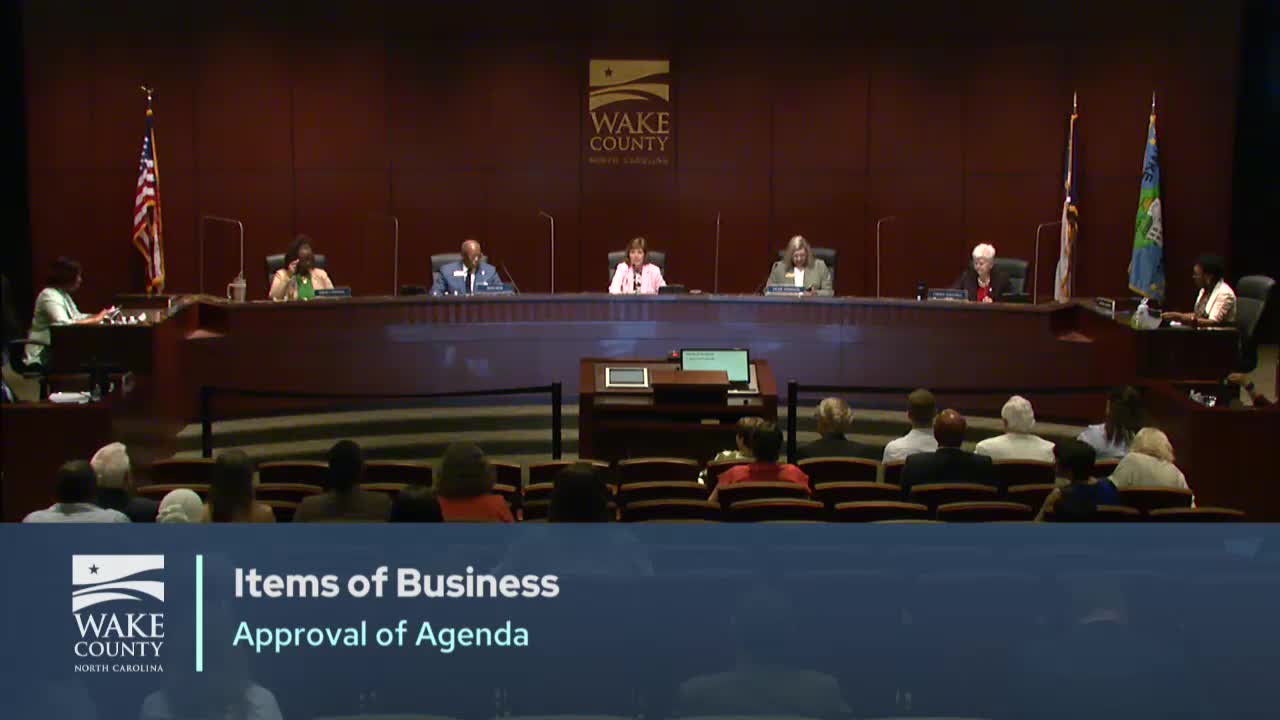Article not found
This article is no longer available. But don't worry—we've gathered other articles that discuss the same topic.
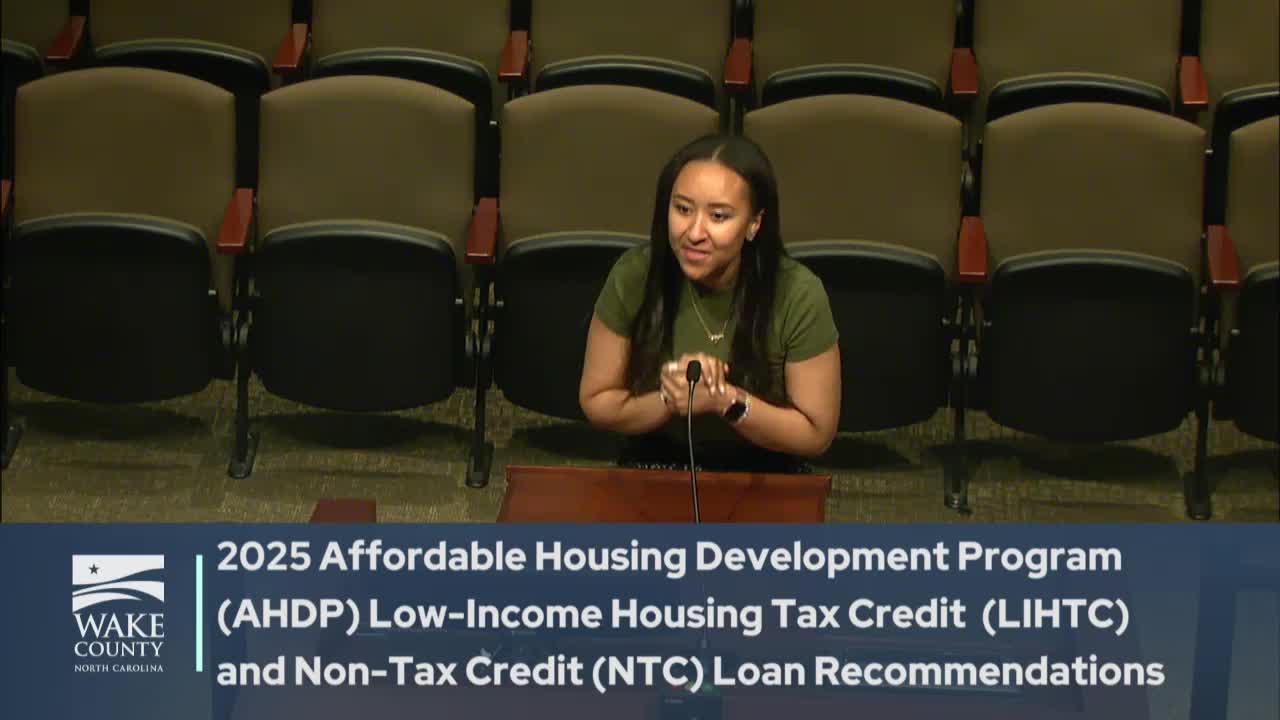
Wake County approves schematic design for EMS Station 2 replacement on Noble Road
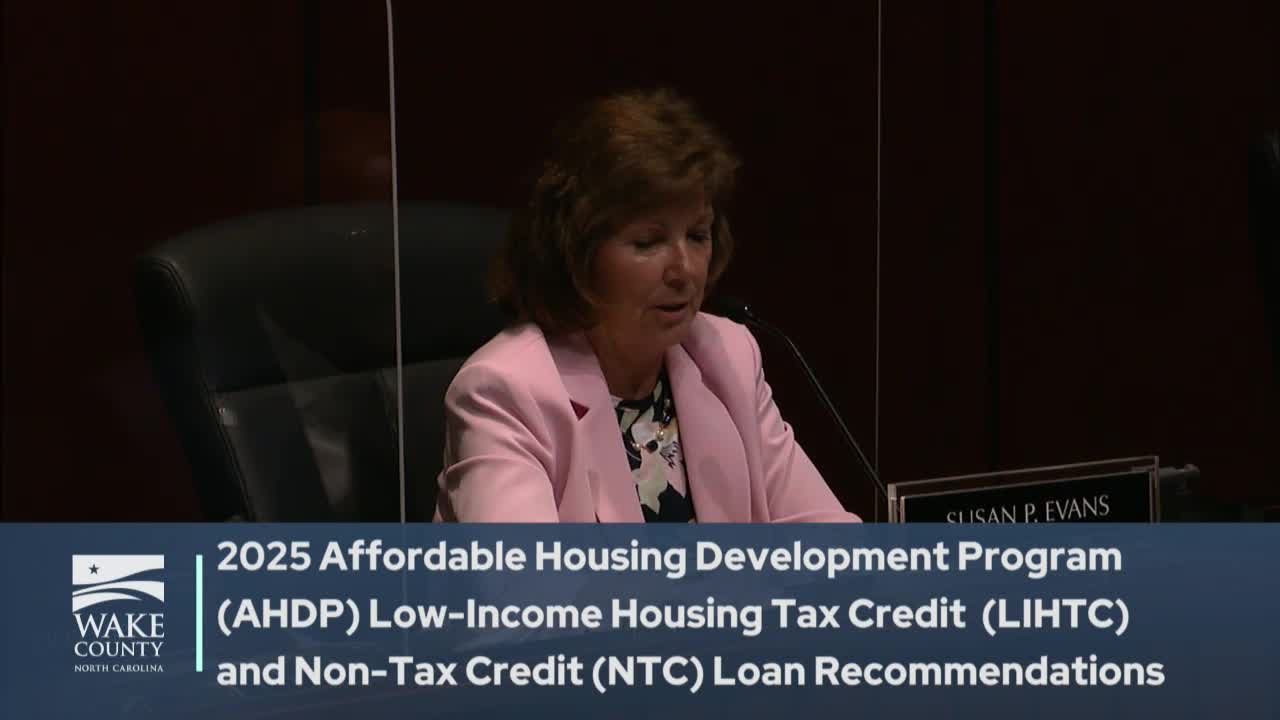
Wake County approves up to $17.875 million in gap loans to preserve and build 725 affordable units
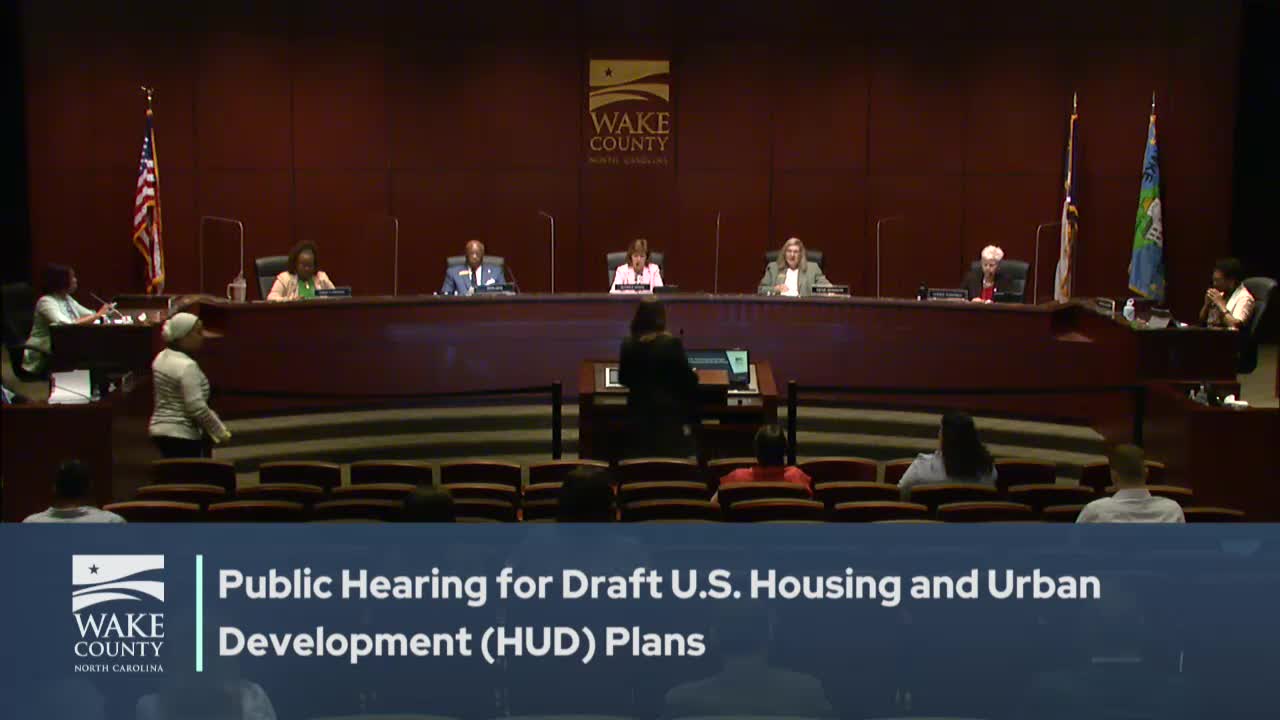
Wake County holds public hearing on HUD consolidated plan; staff seeks comment before final adoption
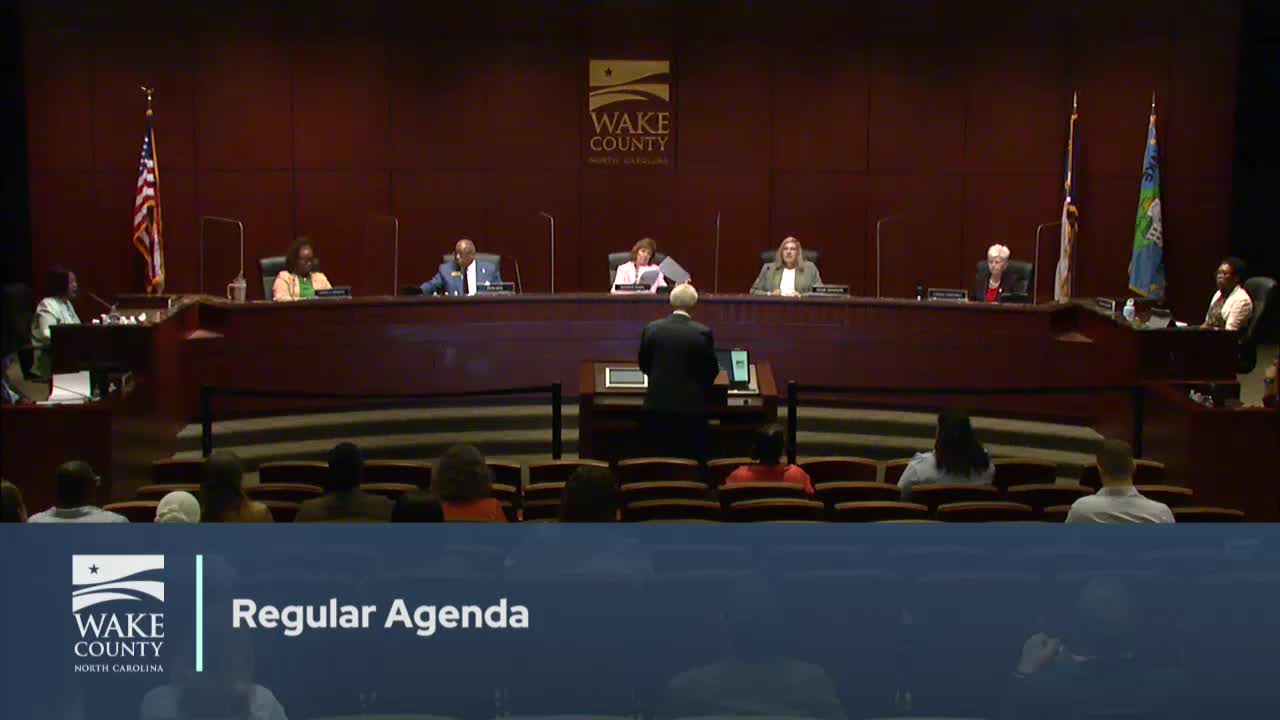
Wake County renames two 0.4‑mile road segments after NCDOT realignment; petition process remains for wider change
